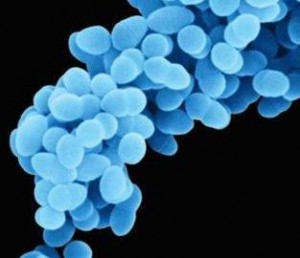 About Pediococcus acidilactici
About Pediococcus acidilactici
Pediococcus acidilactici is a facultative anaerobe bacteria. Pediococci exert antagonism against pathogens through the production of lactic acid and secretion of bacteriocins, bacteria-killing compounds, known as pediocins.
Potential Benefits
Pediococcus acidilactici has a wide range of potential benefits of which are still being studied. Though it is being used as probiotic supplements in treating constipation, diarrhea, relieving stress, enhancing immune response among birds and small animals, human trials are still limited. Pediococcus acidilactici is also known to prevent colonization of the small intestine by pathogens like Shigella, Salmonella, Clostridium difficile and Escherichia coli among small animals.
Digestive Disorders
Pediococcus acidilactici have been used to treat dogs with digestive disorders and also those dogs which were infected by Parvovirus. Prior to treatment with orally administered mixtures of Pediococcus acidilactici and Saccharomyces boulardii the dogs diagnosed with parvovirus infection were shown to exhibit severe gastro-intestinal distress such as vomiting and bloody diarrhea. After the treatment for three days, the bloody diarrhea ceased and the dogs had solid stools.
Combination with S. boulardii
Pediococcus acidilactici in conjunction with Saccharomyces boulardii stimulates humoral immune response to produce higher Eimeria-specific antibody levels while also reducing the number of oocysts shed by possible competitive inhibition and pediocin production which inhibit pathogenic bacteria and other gram-positive spoilage. [1, 2]
Immune Health Benefits
Pediococcus acidilactici can function as immune modulators. Animals fed with P. acidilactici have shown enhanced immune responses against infectious coccidioidal diseases. [3, 4]
Antibiotic Treatment
Dogs typically undergo antibiotic treatment to eliminate infectious pathogens or parasites and to prevent secondary infections. However, the treatment of antibiotics can also disrupt the ecosystems of beneficial microorganisms in dog’s gastrointestinal (GI) tracts. When dogs with digestive disorders were treated by antibiotics together with Pediococcus acidilactici probiotic products, the surviving millions of Pediococcus product are able to alleviate the disruptive balance of microorganisms in dogs’ GI tracts caused by antibiotics treatment and to normalize the intestinal microflora. [5]
Sources
1. Ennahar S., Deschamps N. 2000. Anti-Listeria effect of enoterocin A, produced by cheese-isolated Enterococcus faecium EFM01, relative to other bacteriocins from lactic acid bacteria. J.Appl. Microbiol. 88:449S-457S
2. Lee SH, Lillehoj HS, Dalloul RA, Park DW, Hong YH, and Lin JJ. 2007. Influence of Pediococcus –based probiotic on coccidiosis in broiler chickens. Poultry Sci. 86:63-66
3. Lee SH, Lillehoj HS, Park DW, Hong YH, and Lin JJ. 2007. Effects of Pediococcus –and Saccharomyces -based probiotic (MitoMax) on coccidiosis in broiler chickens. Comparative Immuno Microbiol & Infectious disease. 30:261-268
4. Lin J.J. 2006. Probiotics as alternative Biomedicines for pets with digestive disorders. Proceeding of 8th Annual meeting of JBVP. 3-288-292.
5. Mizutani W., Yamasaki R, Lin, JJ, Kuki M, and Kato G. 2007. Pediococcus-an unique probiotics we use as a novel GI supplement. Annual Meeting of JBVP. 3-269-3-272


Leave a Reply
Privacy Policy: ProbioticsDB.com only uses your information to respond to any questions you may have. We will not contact you for any other purposes and will not sell, distribute, or disseminate your information.